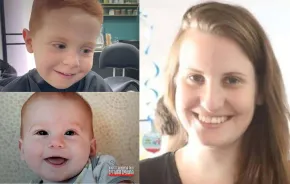There is nothing more gratifying for a parent than to see his or her
child stand squarely on his own two feet, emanating a strong sense of
self. In that moment, you start to believe there is a good chance that
they will lead a self-determined life -- a life guided by their own
north star and not by the myriad of external forces.
Why does a strong sense of self matter so much? Because when children
find their authentic voice, the cacophony of life can never take center
stage. The child is always in the driver's seat and, at any time, they
can return to a certainty they hold deep inside that they will be OK,
regardless of the surrounding din.
School enters into a child's world after much of a child's sense of
self has already been established, for better or for worse. So
educators face a Herculean task every day, especially when a child
hasn't gotten the parental support he or she needs.
Today's school systems are structured around the concept of
accountability -- especially adults' accountability to other adults who
are trying to create a productive workforce and responsible citizens
for the future. In most cases, especially in public education, our
deeper accountability to the child's own authentic development is not
foremost.
If education's charge became helping every child develop his or her
authentic self, we would have to embrace arts education's vital role in
the curriculum. Why? Because if there is one thing that is certain
about the impact of excellent arts education, it is its ability to
cultivate creative habits of mind and a strong sense of self.
We need to foster the creative imagination, self-worth, and happiness
of young people, and engaging them in artistic expression is one
powerful step in that direction.
These days, arts education is asked to prove itself in terms of
improving test scores in core subjects. Studies by James Catterall at
UCLA show that students with greater arts participation perform better
on standardized tests; still, the arts remain relegated to the margins.
This is a result of education's current goal post. When the goal post
is creating a workforce, engaging students fully in their own
development takes second priority to learning the basics.
But when arts education is asked to prove itself in terms of developing
an authentic voice, things change substantially. In a quality arts
classroom, students are engaged in projects that have deep meaning for
them, that engage them socially and emotionally in ways other subjects
rarely can. Creative habits of mind such as persistence and discipline,
tolerance for ambiguity, reflection and metaphorical thinking are
practiced in the same way as multiplication tables are practiced. Yet,
students are able to mine the depth of themselves and their own
capacities in ways memorizing multiplication tables would never offer.
And when practiced regularly, these habits become tools critical for
navigating the world and its intense complexity.
If you have the resources, you can send your child to a school with
these different goal posts. Such schools have the luxury of a less
political environment and can explore the multi-faceted learning
children need to thrive. Private education offers a refuge for parents
who find the focus on accountability and its under-resourced
environment totally untenable. But for other people's children, there
is no such refuge.
When we chose to refer to every child as 'our children,' and when we
imagine ourselves as responsible for the well-being of all young
people, we insist on a different design for education. No longer would
schools be focused mainly on creating the workforce of the future. As
deeply invested mothers and fathers, we could demand that they be
designed to help every child find their own north star, that being our
greatest hope.
So take a moment to imagine yourself the mother or father of a child at
Bailey Gatzert or Thurgood Marshall Elementary Schools -- schools with
critically limited resources. Imagine how important it would be to you
that your child have access to the arts as a means of discovering his
or her own best self, since you know that will offer an excellent
chance at happiness. And imagine the expression on your child's face
when the awareness of his or her own worth blossoms into certainty.
That's our vision for the future, and our hope for every child.
For more information, visit www.artscorps.org and www.kirlinfoundation.org.
Lisa Fitzhugh is a founder of Arts Corps. Ron Rabin is Executive Director of the Kirlin Charitable Foundation.









